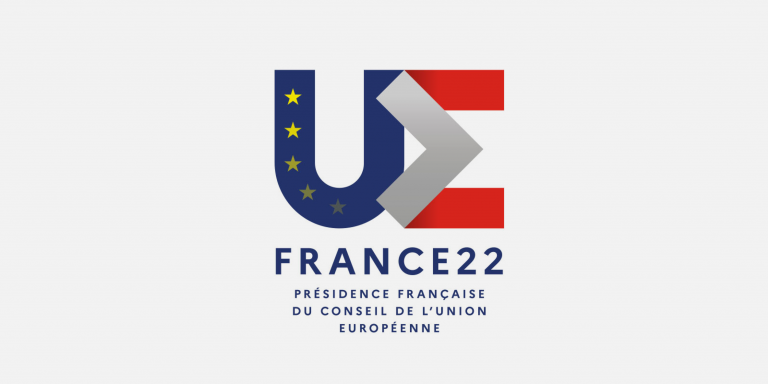
The French Presidency of the European Union (PFUE), which ended on June 30, was strongly marked by the Russian-Ukrainian conflict. Since the beginning of the year, despite the context, France has been working on a sovereign digital Europe at the service of citizens, companies and European values. In particular, it has enabled the implementation of the Digital Services Act (DSA) and the Digital Markets Act (DMA), designed to provide a better framework for the sector.
The Presidency of the Council of the EU lasts 6 months. The Czech Republic took over from France before Sweden took over. The three countries formed a trio presidency on January 1 and defined their priorities for the next 18 months, giving them more time to achieve their common goals. Among other things, they have committed to ensuring the Union’s digital sovereignty in an autonomous and open manner, to putting in place reliable industrial solutions and to strengthening the Union’s cyber-resilience and responsiveness.
To this end, they intend to foster the development of technologies, including AI, supercomputers and quantum computing, blockchain and semiconductor chips. The three Presidencies also intend to respond to the Commission’s Communication “A Digital Compass for 2030: Europe points the way to the digital decade” and, in particular, to advance work on the EU regulatory framework.
The progress of the FPEU
Two texts concerning digital regulation were the subject of provisional political agreements between the European Parliament and the Council of the EU during the FPEU, allowing the EU to assert its regulatory autonomy: the Digital Market Acts (DMA), concluded on March 24, aiming to establish fair competition and limit the market power of the large online platforms, which should be adopted next fall.
The Digital Services Act (DSA), signed on April 23, seeks to establish transparent recommendation systems and to curb the proliferation of illegal content online (hate, child pornography, terrorism, etc.)
Given the current political context and the increase in cyberattacks, the EU has decided to strengthen cybersecurity within the union: “SRI 2”, will replace the current directive on the security of networks and information systems (SRI directive).
From the beginning of the Russian invasion, the Member States affirmed their solidarity with Ukraine and the EUFP coordinated the supply of IT equipment to Ukraine: more than 10,000 tons of equipment were delivered to the Ukrainian government from the Polish border.
In addition, two important projects of common European interest (PIIEC) aimed at consolidating European industrial capacities in the cloud and electronics sectors have been pre-notified and will help strengthen the EU’s strategic autonomy.
Finally, the adoption of the universal charger for electronic equipment
(smartphones, tablets…), will allow Europe to reduce its electronic waste by more than 10,000 tons each year; on their side, consumers will save a new charger when buying electronic devices.
The Digital Assembly
Organized each year by the Presidency of the Council of the European Union and the European Commission, the Digital Assembly is a high point of debate and meetings for the entire European digital ecosystem.
In Toulouse, on June 21 and 22, it represented the last event of the digital component of the French Presidency of the Council of the European Union.
The French presidency wanted to devote this event to the challenges of the future, notably by addressing the green digital transition as well as future developments in usage, through the themes of metaverses and immersive technologies.
The dual digital and environmental transition
The digital transition and a smarter and greener use of technology will help the EU to reduce its net greenhouse gas emissions by at least 55% by 2030 and make Europe climate neutral by 2050, as set out in the Green Pact for Europe and the European Climate Act.
Following the Digital Assembly, 18 Member States are calling for the definition, by 2026, of objectives to maximize the use of digital technology for the ecological transition while limiting its carbon and environmental footprint.
They also pledge to pursue efforts to :
- reduce European dependence (semiconductors, raw materials, etc.) in the digital sector;
- Reduce the carbon and environmental footprint of digital infrastructures (data centers; processors; network infrastructures; etc.) and electronic equipment, the production of which represents nearly 75% of the sector’s carbon footprint;
- develop a common methodology to scientifically measure the carbon footprint of the digital sector.
Develop the metaverse
Finally, after the Digital Assembly, the French Presidency of the Council is working on
drafting proposals to develop metaverses and immersive technologies in Europe. It calls on creators to build them in compliance with European rights and principles.
Bruno Le Maire, French Minister of Economy, Finance and Industrial and Digital Sovereignty, said:
“The Digital Assembly marks the end of the French Presidency of the Council of the European Union. In 6 months, the French Presidency has achieved major milestones, including the adoption of the Digital Markets legislation and the Digital Services legislation to make digital platforms accountable, and launched initiatives such as Scale Up Europe, which aims to strengthen the EU’s innovative ecosystems. I am proud that at today’s event, Member States agreed to further accelerate the green and digital transition and to strengthen the EU’s capabilities in immersive technologies. They also concluded that further sovereignty in the cloud sector and in data ownership is needed. This is essential if the EU is to achieve its digital goals by 2030. I know that the Czech Republic will continue these efforts and I wish them all the best for the upcoming Presidency.”
Translated from La Présidence Française de l’Union Européenne fait le bilan de son volet numérique









